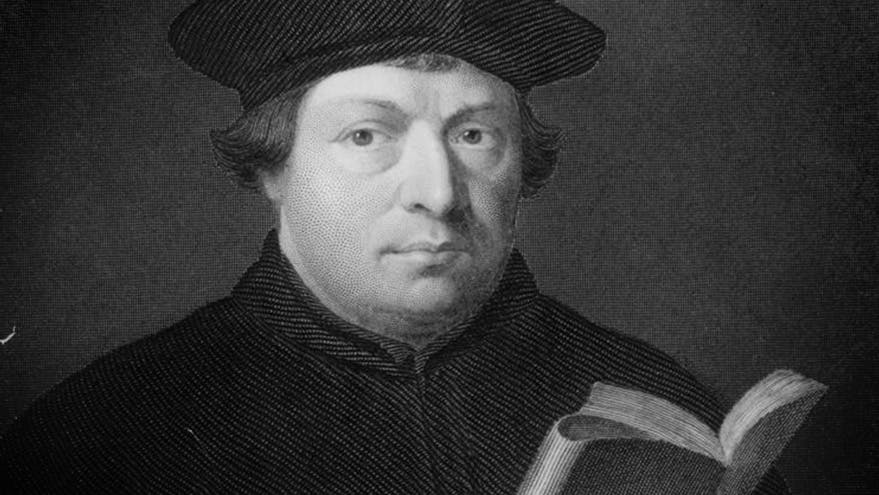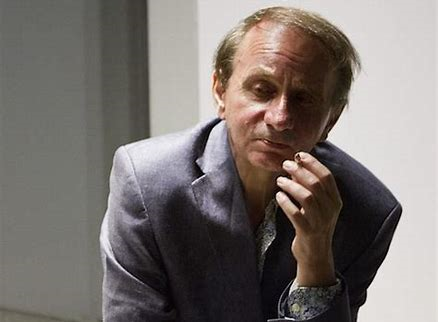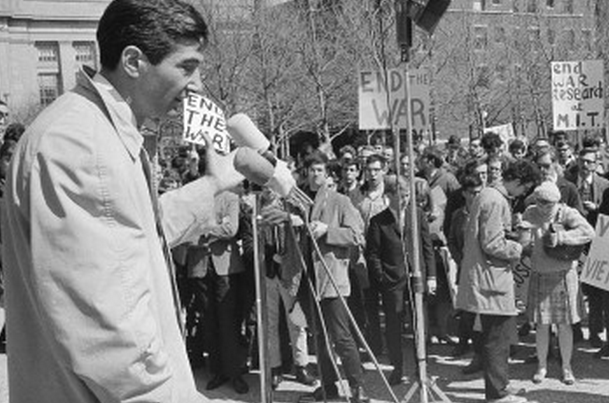
Conscience: The Origins of Moral Intuition, Patricia Churchland; W.W. Norton, 2019, 226 pages
People often claim that their conscience requires or forbids them to do something. Given what conscience says, they have no choice. “Here I stand,” Martin Luther is supposed to have said before the Diet of Worms, “I can do no other.”
“Brain scientists and physical anthropologists could tell an evolutionary story about how human beings acquired the ability to think. But that story would not settle what the standards of correct reasoning were.”
What is the conscience? Is it a faculty that puts one in touch with divine commands that we must obey? Is it, instead, a faculty that enables us to grasp directly what reason requires of us? Patricia Churchland is convinced that conscience is neither of these. For decades, she and her husband Paul Churchland, both philosophy professors at the University of California, San Diego, have supported another view. Human beings are the products of evolution, and conscience is an evolutionary adaptation. To understand it, we need to study the sciences, especially neurobiology and evolutionary biology. If we do this, the nature of conscience ceases to be a mystery.
Evolution has built into us feelings for other people, especially for our families and others close to us, but extending to those in our society as well. Because we have feelings for others, we cooperate with them rather than kill them or steal from them, and this enables us to survive far better than we would otherwise. This is the characteristic way mammals behave. Churchland writes:
The neural wiring for attachment and bonding provides the motivational and emotional platform for sociality, which enables a scaffolding of social practices, moral inhibitions, and norms. If mammals did not feel the powerful need to belong and be included, if they did not care about the well-being of kith and kin, then moral responsibility would have no foothold.
To support this account, Churchland tells us a great deal about the brain, the hormone oxytocin, the mating behavior of the prairie vole, and various and sundry other matters.
Our feelings of empathy for others are the foundation of morality, as David Hume and Adam Smith realized in the eighteenth century, without benefit of brain science or evolutionary biology.
[The biologist Francis] Crick thought that focusing on reason was not getting to the heart of the matter. This seemed right to me. Much earlier, the Scottish philosopher David Hume. . .had argued that we are born with a predisposition to be socially sensitive—what he called our “moral sentiment.”
As for Smith,
[His] idea. . .was his way of coming to grips with the fact that conscience is the outcome of the brains in our heads. Conscience is a brain construct rooted in our neural circuitry, not a theological entity thoughtfully parked in us by a divine being. It is not infallible, even when honestly consulted. It develops over time and is sensitive to approval and disapproval. . .The best we can do, given all this, is to aim for understanding how an impartial spectator might judge us. If this sounds like common sense, I suppose it is. Adam Smith and David Hume are now, as ever, shining examples of common sense.
Is Churchland’s analysis of conscience correct? I do not propose to challenge her account of evolutionary biology or brain science. (I ought to say, though, that the philosophers Jerry Fodor and Thomas Nagel have to my mind raised convincing criticisms of the strictly adaptationist account of evolution she accepts.) Accepting as given what she says about the relevant disciplines, it is clear that Churchland has failed to make good her case. A feeling that we experience, however hardwired it may be, does not dictate our reaction to it. We can examine our feeling and see whether we wish to accede to it or to resist it.
To this objection, Churchland’s answer is obvious. She would say that how we react to our feelings is also subject to strict evolutionary constraints. If she said this, though, she would be disregarding human rationality. Other species do not talk or write about the nature of conscience and morality: we can. Given this fact, we can ask whether group survival is the be all and end all of morality, as Churchland would have it, or whether there is more to it than that.
An analogy may make clearer the point of our criticism. Brain scientists and physical anthropologists could tell an evolutionary story about how human beings acquired the ability to think. But that story would not settle what the standards of correct reasoning were.
It is precisely this point that the philosopher Thomas Nagel was getting at in a passage that Churchland quotes from him but fails to understand. The passage in question is this:
People have, to greater or lesser degrees, a capacity for reasoning that follows autonomous standards appropriate to the subjects in question, rather than in slavish service to evolutionarily given instincts merely filtered through cultural forms or applied in novel environments. Such reflection, reasoning, judgment and resulting human behavior seem to be autonomous in the sense that they involve exercises of thought that are not themselves significantly shaped by specific evolutionarily given tendencies, but instead follow independent norms appropriate to the pursuits in question [italics omitted].
Churchland says that she is “incredulous” at Nagel’s statement of his position. She takes him to be saying that moral principles are deducible by pure reason, hold without exception, and are independent of our social instincts.
The proper moral rules—the real ones, as it were—are universal, and hence cannot vary across cultures. Any culture that does not adhere to those rules is morally wrong. In short, the proper rules are rather like stable mathematical truths that never vary. The truth does not vary even if cultural beliefs vary. Everywhere, 2 + 2 = 4.
This is not at all what Nagel is saying. He is not claiming that there are universal moral principles that hold without exception, though the passage doesn’t exclude this. Rather, he is pointing out that we can ask about instincts given to us by evolution, do we want to be guided by them or don’t we? This procedure of examination need not result in rejection of these instincts, nor need it eventuate in rules that never vary with culture.
If the question then arises, by what standard do we conduct this examination, the answer can only be, by beliefs that seem reasonable to us, after we have looked at them critically. Nagel is not endeavoring to foist on us some unworldly Kantian procedure, divorced from common sense.
In point of fact, Churchland herself follows the course Nagel suggests, though she does not seem aware of it. Thus, in an informative chapter on psychopaths and sociopaths, she tells us that some people lack feelings of empathy for others.
Struggling to find a suitable label for these unusual persons, doctors in the nineteenth century used the expression “moral insanity.”. . .their singular and stunning characteristic is that they lack a conscience and act accordingly. Within the domain of social behavior, they are prone to act in immoral ways, often quite gratuitously, without any benefit for themselves, and with calm planning and intent. And also with a complete lack of remorse, embarrassment, or shame.
Churchland thinks such people are acting badly, but is it at all plausible to say, as I think she would, that her rejection of their behavior means no more than that because she and others have feelings of empathy that lead them to establish a society to which these people pose a danger, these morally insane people need to be controlled? Rather, is she is not claiming, and rightly so, something additional, namely that these people act badly? People who cooperate with others will flourish, and this is a good thing: this means more than that behaving in this way follows certain biologically implanted instincts.
In her analysis of utilitarianism, Churchland herself appeals to standards of reason, independent of biology or brain science.
But how do utilitarians go from the premise that each of us seeks our own happiness to the moral directive that each of us should seek the happiness of everyone? To take an analogy based on discussion by Simon Blackburn, while it may be fine to say that each individual should floss his teeth, it does not follow that each individual should floss everyone else’s teeth. Blackburn’s point is that some argumentative fill is needed; some premises are missing and need to be filled in.
So there are logical truths, after all! The logical gap is not an aberrant line on a brain scan or an insufficient amount of oxytocin.
There is a further difficulty with Churchland’s evolutionary approach. We do, as she says, have feelings of empathy for those within our society but we are often hostile to outsiders. Churchland tends to downplay this, stressing only that we feel more empathy for those close to us than for others, and here she has an entirely valid point. Yet outright hostility to others also has its evolutionary basis, as Sir Arthur Keith long ago noted in The Place of Prejudice in Modern Civilization. To the extent Churchland recognizes such hostility she deplores it.
The news reports continue to show Honduran families who seek asylum in the US being detained at the border with Mexico. Parents are separated from each other; children are taken away from their parents and put in camps that resemble cages. . . .The policy behind these measures is called ‘zero tolerance’ of illegal border crossing. . The attorney general has acknowledged that inflicting misery of this kind is a necessary feature of the policy to deter asylum seekers from trying to enter the US.
Whether this is a correct description of U.S. immigration policy we have not here to inquire. For us the significant point is that Churchland criticizes this behavior, as she takes it to be, though hostility to the stranger has an evolutionary basis. Is her criticism simply a matter of her preference, implanted within her by instinct, for empathy over hostility? I do not think this is plausible.
Though I do not think her evolutionary approach to morality succeeds, her book is not without value. She rightly says that a system of morality cannot be too stringent in its demands on us.
The philosopher Clark Glymour points out that a major constraint in moral theorizing is that ought implies can. What he means is that no one is obliged to do something he or she absolutely cannot do—running if you are paralyzed, for example. The Glymour test for utilitarians is this: Can mothers and fathers care for twenty unknown orphans while neglecting their own two babies? The utilitarian math says they ought to. But can they? By and large, no.
This entirely valid point is not dependent on accepting her evolutionary account of parents’ love for their own children. John Rawls, decidedly not an evolutionary moralist in her sense, wrote about the same phenomenon of an overly demanding morality, calling it the “strains of commitment.”
In Conscience, Churchland continues her habit in previous books of making grossly ignorant comments about religious writers. She writes:
Thomas Aquinas . . .who favored the idea that God is perfectly rational, believed that if we have received God’s grace, then we will know what we are morally obliged to do.. . .Facing a moral dilemma, such as whether the commandment ‘Thou shalt not kill’ includes animals or humans convicted of a capital crime, if we have grace we will do the rational thing, thanks to God having put us in the know.
This is a travesty. Aquinas in the Summa Theologica answered the questions she claims are unsettled problems of interpretation. For Aquinas, these issues are not moral dilemmas dependent on our receiving God’s grace to resolve.
I have been critical of Conscience, but it is well worth reading. It is a forceful statement of a distinctive approach to conscience, and to morality more generally, and readers will learn a great deal about many different scientific disciplines.

